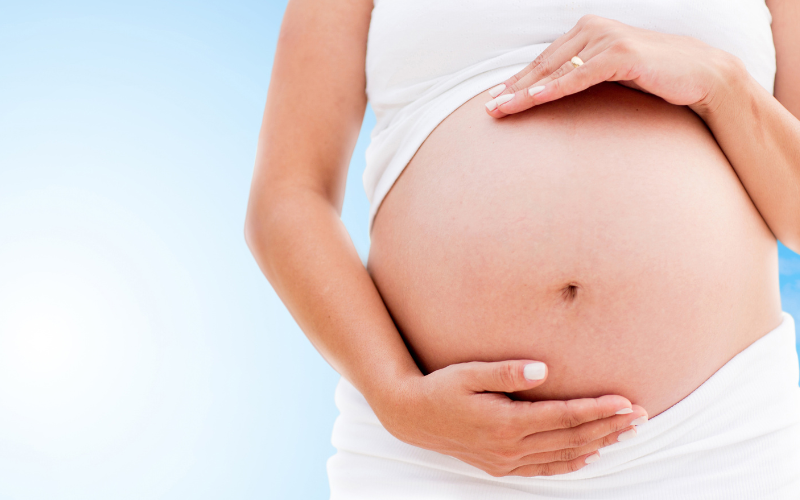Untreated sleep apnea during pregnancy is associated with several increased health risks for both the mother and the baby. Sleep apnea is characterized by repeated interruptions in breathing during sleep, leading to poor oxygenation and fragmented sleep. Below is a summary of the risks:

Maternal Risks
1. Preeclampsia: Sleep apnea is linked to a higher risk of preeclampsia, a condition marked by high blood pressure and damage to organs such as the liver and kidneys.
2. Gestational Hypertension: Increased risk of elevated blood pressure during pregnancy.
3. Gestational Diabetes: Sleep apnea may impair glucose metabolism, leading to a higher incidence of gestational diabetes.
4. Cardiovascular Strain: Recurrent oxygen deprivation can stress the cardiovascular system, potentially leading to arrhythmias or heart issues.
5. Fatigue and Depression: Chronic sleep disruption can exacerbate pregnancy-related fatigue and increase the risk of depression or mood disorders.
6. AND, weight gain, hormonal changes and fluid retention can place you at a higher risk of having sleep apnea when you are pregnant.
Fetal Risks
1. Low Birth Weight: Poor oxygenation in the mother can restrict fetal growth.
2. Preterm Birth: Sleep apnea may increase the likelihood of delivering before 37 weeks of gestation.
3. Fetal Hypoxia: Reduced oxygen levels in the mother can lead to inadequate oxygen delivery to the fetus, affecting development.
4. Neonatal Complications: Babies born to mothers with untreated sleep apnea may face a higher risk of requiring neonatal intensive care.
Long-Term Considerations
Both the mother and the child may face long-term health implications if sleep apnea remains untreated. Early intervention, including the use of an oral appliance or continuous positive airway pressure (CPAP) therapy, weight management, and proper prenatal care, can mitigate many of these risks.
If you suspect sleep apnea during pregnancy, it is crucial to consult a healthcare provider for evaluation and management.
